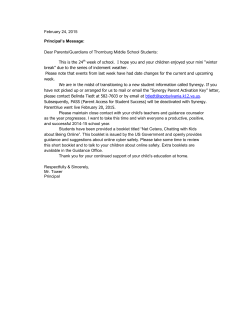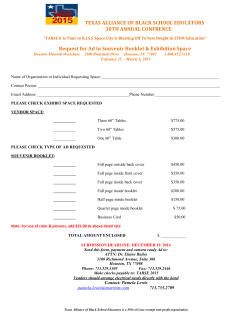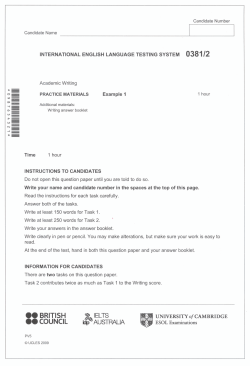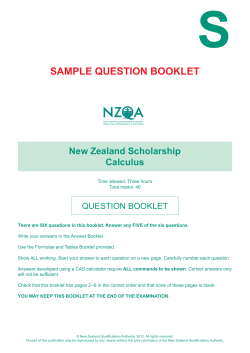
Science Focus Unit 5 - Planet Eadh Focusing Questions: What
5 - Planet Eadh
Review Booklet
Science Focus Unit
Focusing Questions:
What do we know about the Earth we live on -about its surface and what lies below,
What evidence do we have, and how do we use this evídence in developing an understanding of the earth
and its changes?
Guidlng Ouestions and Activities to Help you Study Key Concepts
Topic
I
- Elements {pure substances} - Properties of minerals
What ere minerals?
How is the hardness of a rnlneral determined?
What are the 6 maJor crystaltYPes?
What properties of mínerals enable us to identifit them?
¡
t
To$ic
2-
I
¡
¡
5 - Planet Earth
Review Eooklet
Science Focus Unit
The Rock Cycle - How rocks form - ldentifylng roc*s - Sedimentation and soil profiles
Descrlbe lgneous, metamorphlc and sedlmentary rock in terms of how they were formed and how they can be
identified,
ldé'ntlfication PtopeÉies
Metamorphic
Rock
$edimentary
Rock
Draw a scientific illustration of the rock cycle identil¡ing the type of ohange lhat the rocks undergo.
The Rock Cycle
Science Focus Unit 5 - Planet Earth
Review Booklet
How can rocks be identified?
What is a soil profile?
Topic 3 - Erosion - Types of weathering - biological, mechanical and chemical - (slowly)
(quickly) - Flash Flooding
-
Glaciers
Explain the differences þetween mechanical, biological and chemicalwealhering, giving examples of each
Type of
Weathering
Mechanical
Biological
Chemical
What are some examples of incremental and sudden changes of erosion?
lncremental (slow)
Sudden erosion
Give operational definitions for erratics, moraines, striations and meandering
Erratic
Moralne
Striation
Meandering
-
n
Tooic
4
. Layers of the Earth - Theory
Science Focus Unit 5 - Planet Earth
Review Booklet
of Continental Drift - Theory of Plate Techtonics - Evidence for
these theories - Convection currents and plate zones
Draw and label a scientific illustratíon showing the layers of the Earth
The Layers ofthe Earth
Explain the Theory of Continental Ðrift and the evidence that was collected to support this theory"
Explain the Theory of Plate Tectonics and the technofogies used lo gather evidence to support this theory
Descriþe what forms convection currents in the mantle,
n
Science Focus Unit 5 - Planet Earth
Review Booklet
Explain the difference between diverging and converging continental plates and the zones these create
Topic
5.
Earthquakes - Measuring force and magnitude - Locating epicenter - Earthquake zones and
faults - Tsunamis
What causes earthquakes?
How are earthquakes measured (intensity and magnitude)?
Describe the three types of earthquake waves and their effects
p wave
S WäVE
surface wave
ldentiû the steps needed to locate the 'focus' (epicenter) of an earthquake'
ldentify the different types of rock movement causing an earthquake
T
5 - Planet Earth
Review Booklet
Science Focus Unit
What is a tsunami?
Topic
6
'
Volcanoes and the Ring of Fire
ldentify the main types of voloanoes and provide some examples of some current or famous voloanoes
Type of
Volcano
What is the Ring of Fire?
t
t
5 - Planet Earth
Review Booklet
Science Focus Unit
Where else in the universe can volcanoes be observed?
Topic
7-
Mountain formation, age and types
How are mountains formed?
Whêt types of mountain formations âre common in particular parts of the world?
How is the age of a mountain range determined?
Topic
I - Types of fossil - MouldE ånd cästs
ldentify the different types of fossils that have been found and classified.
Describe the formation of a fossil (moutd and cåst methods)
Science Focus Unit
5 - Planet Earth
Review Eooklet
Topic
I - Radiometric and radiocarbon dating - Geological Time Scale
What is the principle of superposition?
Explain the relative dating technique, used to identlfy the age of a fossit.
Explain the lechniques and differences, between radiometric and radiocarbon dating.
Briefly review the geological time scale, notíng how the time scale is divided into eons, eras and periods
Topic 10 - Locating fossil fuels
What is petroleum and how is it located?
Pefroleurn is
It is located in
Edquest
Notes
Review Qu iz
ì/\f
ebsite
http ://edquest.ca
lndex http://www.edquest.ca/NoteslnoteindexT.html
ln dex http //www.edquest. ca/Tests/testi n dexTsf htm I
.
:
SCIENCE FOCUS 7 Textbook
Unit At A Glance p, 438
Unit Review pgs. 438- 441
© Copyright 2025





















